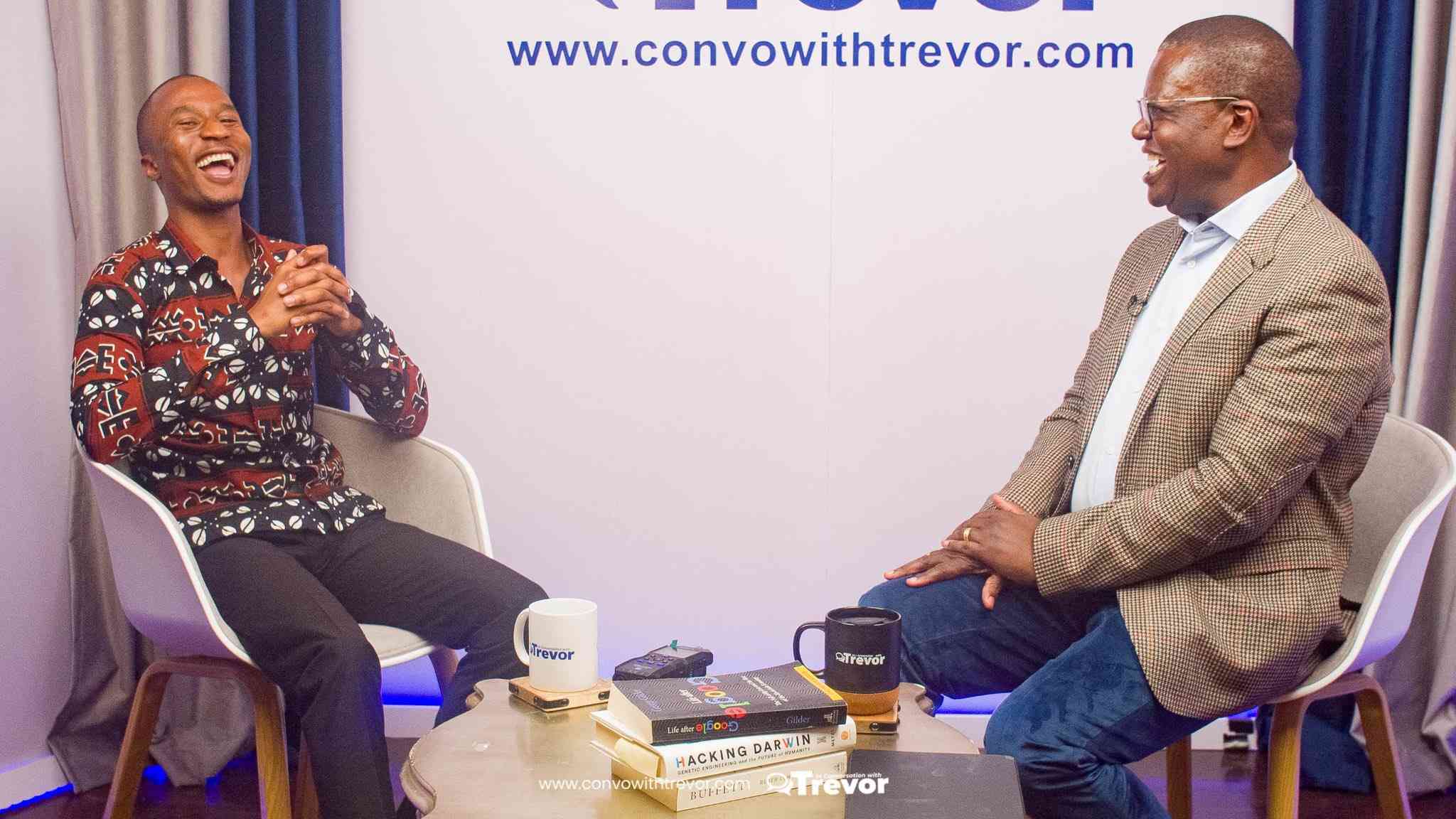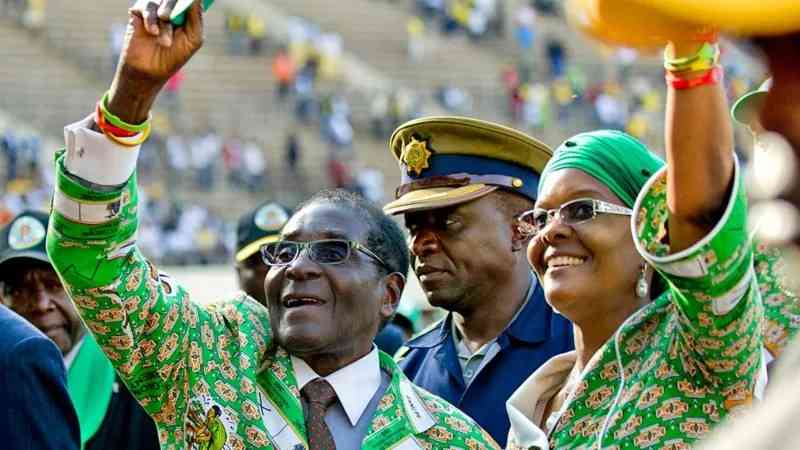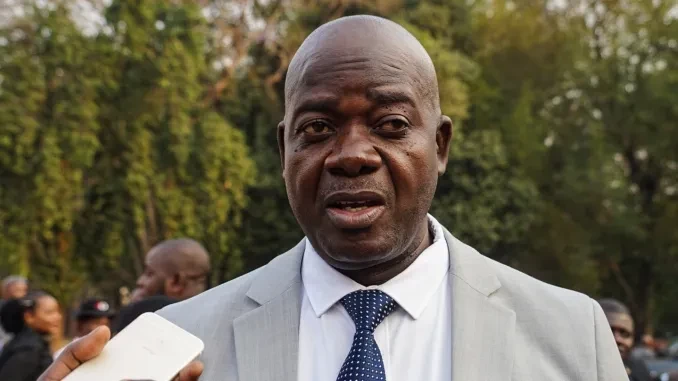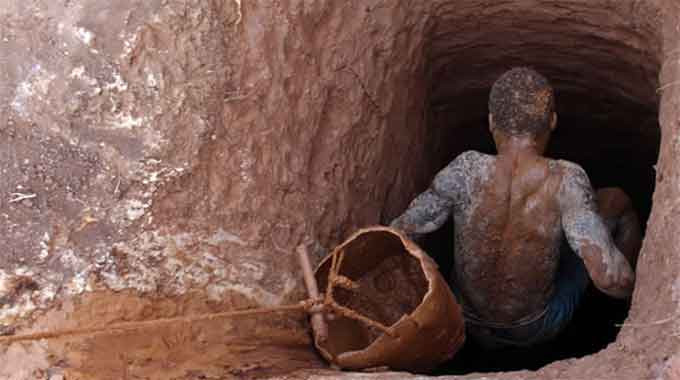
Firebrand opposition activist Gift Ostallos Siziba believes he became a target of the Zanu PF government because of his conviction that Zimbabweans deserve better leadership.
Siziba (GS), a former MP for Sizinda and Citizen Coalition for Change deputy spokesperson, was speaking on the platform In Conversation with Trevor hosted by Alpha Media Holdings chairman Trevor Ncube (TN).
Below are excerpts from the interview.
TN: Greetings, welcome to In Conversation With Trevor, brought to you by Heart and Soul Broadcasting Services.
Today I’m in conversation with Gift Ostallos Siziba, an activist and human rights defender.
You have been detained, arrested, you’ve been abducted, actually arrested multiple times. And has it been worth it?
GS: I think it has been worth it. When we came into politics, when we were student leaders, the first thing that the union teaches you is about the struggle and the necessary commitments that are needed.
And that so much depend on the fight for freedom and democracy in any society, any historic moment. So I think that it’s been worth it.
- In Conversation with Trevor: Chisamba: Let’s be proud of ourselves
- In Conversation with Trevor: ‘I tried to change Zanu PF from within’ – Margaret Dongo
- In Conversation with Trevor : How car crash changed my life
- Chamisa party defiant after ban
Keep Reading
It is worth it. Because what is life without teargas, those that have been captured by history, those that have gone into honours of history of our society, the continent and the world, are people who dare to challenge the status quo ante for the sake of progress of society.
So I think that in the smallest way possible, we have contributed to the discourse of the politics of our country and the future of our own children.
So I think that it is worth it.
TN: So what vision of Zimbabwe are you fighting for?
GS: I think that our struggle is about the fulfilment of the liberation dream.
And the way we philosophised the liberation struggle was based on two things.
One, the will of the people to be realised and the right for black people to choose leaders of their choice.
And it’s sad, of course, that we are still fighting for that because the lifting of the Union Jack was supposed to make sure that black people are able to choose leaders of their choice.
But also philosophers inform us that this is what gives mandate to those that govern, legitimise what philosophers call a social contract, the relationship between those who govern, those that have been governed. So that to us is the first and most important thing.
Secondly, for me, is the issue of the economy, transformation, so that people live better. I don’t think that ordinary Zimbabweans and the oppressed all over are fighting for anything fundamentally utopian.
They just want clean water, they just want to go to school, they just want to find medicine in hospitals just to live better.
So I think for us, that’s the vision, that’s the mission, that’s the central strategy objective of the national democratic project, which we’re a part of, to make the lives of ordinary people better, and when we achieve that, of course, in terms of the proposition, in summer, that’s a democratic developmental state, that’s what some of us see being the future of this country.
So it is the fulfilment of the liberation dream to mean something to an ordinary person, to a young person who was born after 1980, to Gen Z, to the millennials.
The liberation struggle must mean something, it must not be a political rhetoric and the exhausted nationalistic rhetoric.
TN: You have said something about what made you get into politics, which was your experiences as you were growing up, seeing the suffering of people and so forth.
Do you want to take us there in terms of how your upbringing formed the kind of politicians that you’ve become, your experiences that moved you to get into politics?
GS: The brokenness of our society, the struggles of 2008 when I was in high school, and of course, the struggles when we went to the university, my own father, having worked for white people as a garden boy, coming from the countryside to come and work, and these 32 years’ experience the national foods, and getting nothing from NSSA fundamentally caused problems because he lost his life because of the stress of the experience of patience.
You work for 32 years, and then you get nothing, and this is 2008, 2009, there’s a hunger in the country, and you can’t afford tuition fee, you can’t afford school uniforms, and you are going to the university.
Fortunately, when I got the scholarship funded by Strive Masiyiwa’s Econet.
But the fact that I knew that there are people who don’t have access to this privilege of getting a tuition fee funded, I began to understand that our struggles for academic freedom, for tuition fee could not be disconnected from the political question.
All this inequality in society was striking me personally, to the extent that I knew that no one should be subjected to this kind of life.
TN: I am going to stop you there, I am laughing because it is as if you are telling my story, my father was a cook, cook for white people.
The fact that I looked at other people’s fathers driving cars and my father wasn’t driving, and I’m like, you know, Christmas comes, the big thing when we grew up, Christmas was about new clothes, and we were walking barefoot.
So, I blamed my father because I didn’t understand the economy’s circumstances.
nFor full interview visit: www.thestandard.co.zw
I’m sort of blaming the government then, but I was too small to understand this. Is this the way I’m going?
GS: I think that is why political consciousness and political education is important in society, and it answers why when we were student leaders, we used to read the communist manifesto, and we knew then when we were students that it is the most banned political literature, and it is not by accident, because you see the suppression that happens in institutions of our learning, in the media space, in all the sectors of society, governments all over try to suppress and people's access to necessary political literature, because they don’t want you to realise that your own problems are linked to the national and political questions of the day.
TN: Is there no moment when you feel hopelessness and so forth? It can’t be easy in that space.
GS: I know that it is a significant contribution I have made, but I saw your newspapers, which we consider progressive.
I saw them writing my story in terms of what I have written down, my views about the politics of our country and how I have died in the enemy’s lines.
So I felt that I have done something for my country and these people are killing me because of that belief because I had the conviction.
TN: So you are envisioning yourself dead? Is that what you are saying?
While remaining focused on the task at hand in transforming the country for change, what remains your biggest victory so far that you have scored?
GS: I think that our biggest victory was to allow young people to see the need for them to contribute to the politics fundamental in 2018.
Up to 2023 I think young people began to be interested in the politics of our country.
The 2023 outcome showed that the coming in of younger people in parliament, in local government.
I think to some extent we contributed to that interest in young people to participate because most people
So for me I think that has been the biggest victory in terms of our country.
The losses I think that our biggest loss is the current status quo.










